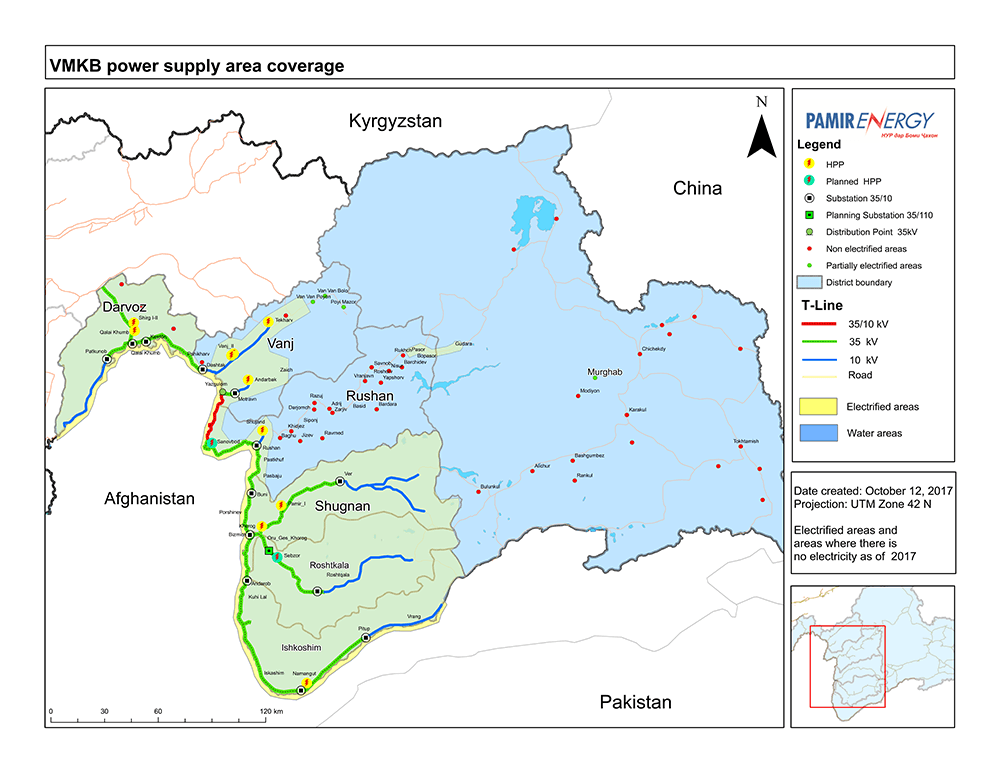Following the collapse of the Soviet Union in 1991 and a five-year civil war, Tajikistan’s electrical infrastructure required major investment. Among the most affected areas was the Gorno-Badakhshan Autonomous Oblast (GBAO), where people and businesses suffered during the cold winter months. The lack of electricity for heating resulted in the closure of schools, health centers and businesses. Many of the region’s 220,000 residents resorted to wood fuel for their heating and cooking needs during the winter. Chopping down trees destroyed 70 percent of the region’s forests within a decade. Smoke inhalation from fuelwood caused an increase in respiratory illnesses.
Growing the Electrical Grid in Eastern Tajikistan
The Aga Khan Fund for Economic Development (AKFED), with its partners, formed Pamir Energy in 2002 to address the situation. The company has invested around $37 million to repair the electrical infrastructure of GBAO and expand capacity. In the wake of these efforts, over 86 percent of the region’s inhabitants and 96% of households in Eastern Tajikistan now have access to electricity. Subsidies ensure that even the poorest households can access power. Learn more about AKFED’s approach here. Reliable electricity has significantly improved the lives of GBAO and Afghan Badakhshan residents. Schools and homes now have access to heating in the winter. Electricity has also improved health by replacing burning wood or coal. Additionally, accomplishing basic household tasks, like boiling water, takes less time and resources.
Working Together with USAID to Light Up New Communities
In 2012 with funding from the U.S. Agency for International Development (USAID), the Aga Khan Foundation USA started the Cross-Border Energy project to expand Pamir Energy’s reach across the border to Afghanistan’s remote Shugnan District. This program has helped to multiply electricity use thereby nearly eightfold and helps establish infrastructure for regional growth.
Through our partnership with USAID, we have extended transmission lines across the Panj River, which serves as much of the Afghan-Tajik border, into Afghanistan’s Shugnan district. Communities that never have had access to electricity before are now able to experience an improved quality of life and in turn, regional trade and cooperation have increased.
Reaching New Customers Across Borders for Impact
 Pamir Energy’s parent entity, the Aga Khan Development Network, plans to reach thousands more customers in Afghanistan in the coming years. Through partnerships, Pamir Energy will expand its network to Chitral in Pakistan’s Khyber Pakhtunkhwa province in the medium- to long-term to reach even more remote mountainous communities. The company will achieve this with support from the International Finance Corporation, the Asian Development Bank, and other partners.
Pamir Energy’s parent entity, the Aga Khan Development Network, plans to reach thousands more customers in Afghanistan in the coming years. Through partnerships, Pamir Energy will expand its network to Chitral in Pakistan’s Khyber Pakhtunkhwa province in the medium- to long-term to reach even more remote mountainous communities. The company will achieve this with support from the International Finance Corporation, the Asian Development Bank, and other partners.
Learn more about USAID and AKF USA’s partnership to foster cross-border energy here.





